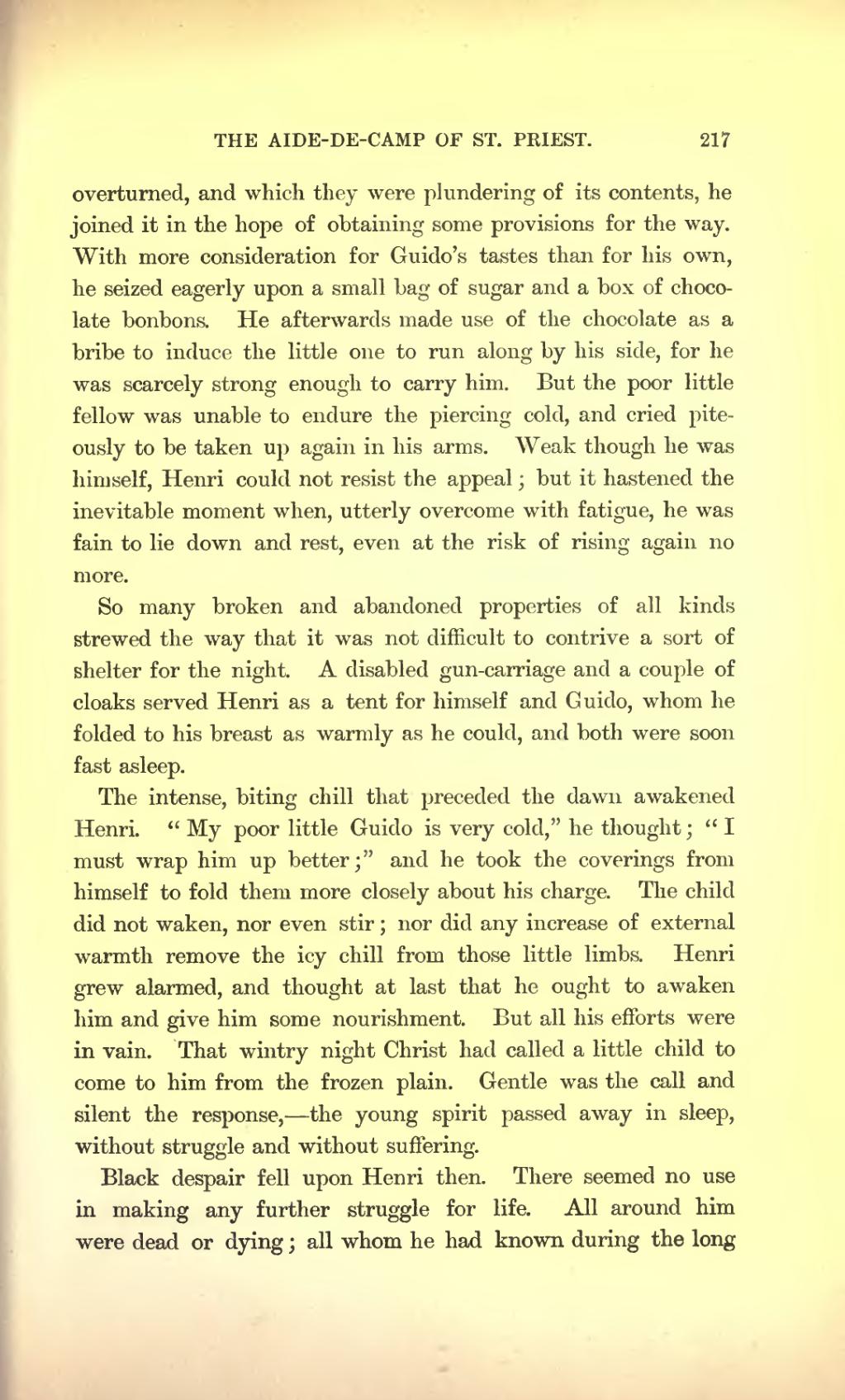overturned, and which they were plundering of its contents, he joined it in the hope of obtaining some provisions for the way. With more consideration for Guido's tastes than for his own, he seized eagerly upon a small bag of sugar and a box of chocolate bonbons. He afterwards made use of the chocolate as a bribe to induce the little one to run along by his side, for he was scarcely strong enough to carry him. But the poor little fellow was unable to endure the piercing cold, and cried piteously to be taken up again in his arms. Weak though he was himself, Henri could not resist the appeal; but it hastened the inevitable moment when, utterly overcome with fatigue, he was fain to lie down and rest, even at the risk of rising again no more.
So many broken and abandoned properties of all kinds strewed the way that it was not difficult to contrive a sort of shelter for the night. A disabled gun-carriage and a couple of cloaks served Henri as a tent for himself and Guido, whom he folded to his breast as warmly as he could, and both were soon fast asleep.
The intense, biting chill that preceded the dawn awakened Henri. "My poor little Guido is very cold," he thought; "I must wrap him up better;" and he took the coverings from himself to fold them more closely about his charge. The child did not waken, nor even stir; nor did any increase of external warmth remove the icy chill from those little limbs. Henri grew alarmed, and thought at last that he ought to awaken him and give him some nourishment. But all his efforts were in vain. That wintry night Christ had called a little child to come to him from the frozen plain. Gentle was the call and silent the response,—the young spirit passed away in sleep, without struggle and without suffering.
Black despair fell upon Henri then. There seemed no use in making any further struggle for life. All around him were dead or dying; all whom he had known during the long
